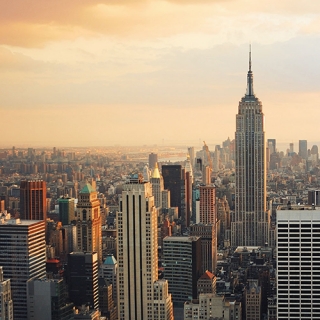


U.S. consumer prices increased by the most in five months in June amid higher costs for some goods, suggesting tariffs were starting to have an impact on inflation and potentially keeping the Federal Reserve on the sidelines until September.
Softening demand as consumers hunker down, however, is limiting price increases for services like airline fares and hotel and motel rooms, keeping underlying inflation muted for now. That trend, if sustained, could ease concerns of a broad-based rise in price pressures from tariffs.
Nonetheless, economists generally expect the tariff-induced rise in inflation to become more evident in the July and August CPI reports, arguing that businesses were still selling merchandise accumulated before President Donald Trump announced sweeping import duties in April. They also noted that when Trump slapped tariffs on washing machines in 2018, it took several months for the duties to show up in the inflation data.
Trump last week announced higher duties would come into effect on August 1 for imports from a range of countries, including Mexico, Japan, Canada and Brazil, and the European Union.
"Inflation has begun to show the first signs of tariff pass-through," said Ellen Zentner, chief economic strategist at Morgan Stanley Wealth Management. "While services inflation continues to moderate, the acceleration in tariff-exposed goods in June is likely the first of greater price pressures to come. The Fed will want to hold steady as it awaits more data.
The CPI increased 0.3% last month after edging up 0.1% in May, the Labor Department's Bureau of Labor Statistics said on Tuesday. That gain was the largest since January, and also reflected higher rental costs. Gasoline prices rebounded 1.0% after four straight monthly declines.
Food prices rose 0.3%, matching the increase in May. Grocery store prices also advanced 0.3%, lifted by a 1.4% increase in the costs of nonalcoholic beverages and 2.2% jump in coffee prices, likely because of higher import duties.
Fruits and vegetables cost 0.9% more while beef prices jumped 2.0%. But eggs were 7.4% cheaper as an avian flu outbreak abated. The cost of food consumed away from home rose 0.4%.
In the 12 months through June, the CPI advanced 2.7% after rising 2.4% in May. Economists polled by Reuters had forecast the CPI would climb 0.3% and rise 2.6% on a year-over-year basis.
The U.S. central bank tracks Personal Consumption Expenditures (PCE) Price Index data for its 2% target. The Fed is expected to leave its benchmark overnight interest rate in the 4.25%-4.50% range at a policy meeting later this month. Minutes of the central bank's June 17-18 meeting, which were published last week, showed only "a couple" of officials said they felt rates could fall as soon as the July 29-30 meeting.
CPI inflation readings came in on the low side in February through May, leading to demands by Trump for the Fed to lower borrowing costs. Trump persisted on Tuesday, writing on his Truth Social media platform, "Consumer Prices LOW. Bring down the Fed Rate, NOW!!
Source: Investing.com
Japan's annual inflation rate edged down to 2.9% in November 2025 from October's 3-month high of 3.0%. Core inflation stood at 3.0%, keeping the same pace as in October and aligning with estimates. Mo...
Goldman Sachs sees gold prices climbing 14% to $4,900 per ounce by December 2026 in its base case, it said in a note on Thursday, while citing upside risks to this view due to a potential broadening o...
The BRICS group of countries is increasingly being considered as an alternative for global diplomacy and cooperation amidst increasing tariff and protectionist policies from the United States. A numbe...
Applications for US unemployment benefits fell after a spike in the previous week, underscoring the choppy nature of the data at this time of year. Initial claims decreased by 13,000 to 224,000 ...
Annual inflation in the United States (US), as measured by the change in the Consumer Price Index (CPI), fell 2.7% in November, according to a report by the US Bureau of Labor Statistics (BLS) on Thur...
US stocks closed sharply higher on a triple-witching Friday, with the S&P 500 rising 0,9%, the Nasdaq 100 gaining 1.4%, and the Dow Jones adding more than 180 points, extending gains from the previous session as technology stocks...
European equities closed higher on Friday, with the STOXX 50 up 0.6% and the STOXX 600 rising 0.4% to a fresh record, boosted by expectations of further Fed rate cuts next year and fading bets that the ECB will raise borrowing costs in...
Gold (XAU/USD) Gold (XAU/USD) regains ground on Friday, edging modestly higher after earlier weakness, even as a resilient US Dollar (USD) caps upside momentum. At the time of writing, XAU/USD trades around $4,345, recovering from a daily low near...
 Fed Governor Christopher Waller said Wednesday that the Fed is in no rush to cut interest rates, given the current outlook, according to...
Fed Governor Christopher Waller said Wednesday that the Fed is in no rush to cut interest rates, given the current outlook, according to...
 The Bank of Japan (BOJ) is expected to raise interest rates on Friday to a three-decade high, from 0.5% to 0.75%, signaling readiness for further...
The Bank of Japan (BOJ) is expected to raise interest rates on Friday to a three-decade high, from 0.5% to 0.75%, signaling readiness for further...
 European stocks finished in positive territory on Thursday as traders positioned for central bank decisions today.
The pan-European Stoxx 600 was...
European stocks finished in positive territory on Thursday as traders positioned for central bank decisions today.
The pan-European Stoxx 600 was...
 The United States ordered a blockade of Venezuelan oil tankers because the Trump administration believes President Nicolás Maduro's regime is acting...
The United States ordered a blockade of Venezuelan oil tankers because the Trump administration believes President Nicolás Maduro's regime is acting...